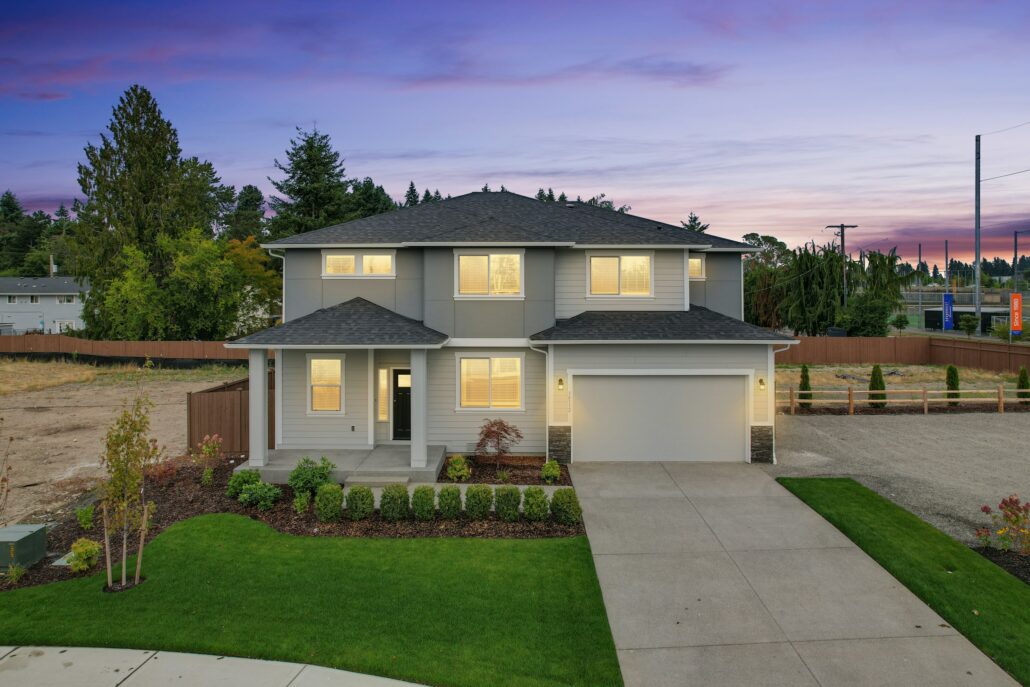
🏗️ What to Know Before Buying a New Construction Home
Buying a new construction home is exciting—everything is brand new, energy-efficient, and built to today’s design trends. But while the idea of being the first to live in a home is appealing, there are a few important things to consider before signing on the dotted line.
1. Understand the Builder’s Reputation
Not all builders are created equal. Research the builder’s track record by reading online reviews, visiting past communities they’ve developed, and talking to current homeowners. A reputable builder should have a portfolio of completed projects and be transparent about their warranty process.
Pro tip: Ask your real estate agent for insight on local builders—they often know which ones are known for quality work and which tend to cut corners.
2. Model Homes vs. Reality
The model home you tour is designed to impress—it often includes every possible upgrade, from quartz counters to high-end lighting. Your actual home will likely include the “base” finishes unless you pay extra for upgrades.
Be sure to ask:
-
What’s standard vs. optional?
-
Can I see samples of the base materials?
-
How much do typical buyers spend on upgrades?
3. Timeline and Delays
New construction timelines can shift due to permitting, weather, or supply chain issues. Always ask for an estimated completion date and what happens if there’s a delay. If you’re selling your current home or relocating, this will help you plan your transition.
Tip: Some builders offer rate locks or incentives if you use their preferred lender, which can help you manage uncertainty around timing and interest rates.
4. Builder Incentives and Negotiations
Many builders offer incentives—such as closing cost credits, interest rate buy-downs, or free upgrades—to attract buyers. However, these are often tied to using the builder’s preferred lender or title company.
You can also ask the builder to contribute toward your closing costs or a mortgage rate buy-down instead of price reductions. This can significantly reduce your monthly payment, especially in higher-rate environments.
5. Home Inspections Still Matter
Even new homes can have construction errors. It’s wise to hire a professional home inspector before closing to check for issues with electrical, plumbing, or structural work. A third-party inspection gives you peace of mind and ensures the home meets building standards.
6. Warranties and Post-Closing Support
Most new homes come with a builder’s warranty, which typically covers:
-
Structural components for up to 10 years
-
Mechanical systems (HVAC, plumbing, electrical) for 1–2 years
-
Workmanship and materials for 1 year
Make sure you understand what’s covered, what’s not, and how to file a warranty claim if needed.
7. Future Development and HOA Rules
Ask about future phases of construction in the community. More homes being built later may mean ongoing construction noise and dust. Also, review the HOA’s rules—especially if you have pets, plan to rent out your property, or want to add features like a hot tub or solar panels.
💡 The Bottom Line
Buying new construction can be a fantastic choice if you value customization, energy efficiency, and low maintenance. Just make sure to approach the process with a clear understanding of costs, timelines, and your options for negotiation. With the right guidance and questions, you can enjoy the excitement of being the very first owner of your dream home—without any surprises.
Some of my favorite Seattle-area builders are SoundBuilt, MainVue, New Home Co, and KB Home. These new home builders often offer great incentives for home buyers, and you get a chance to customize pieces of your home and finishes.